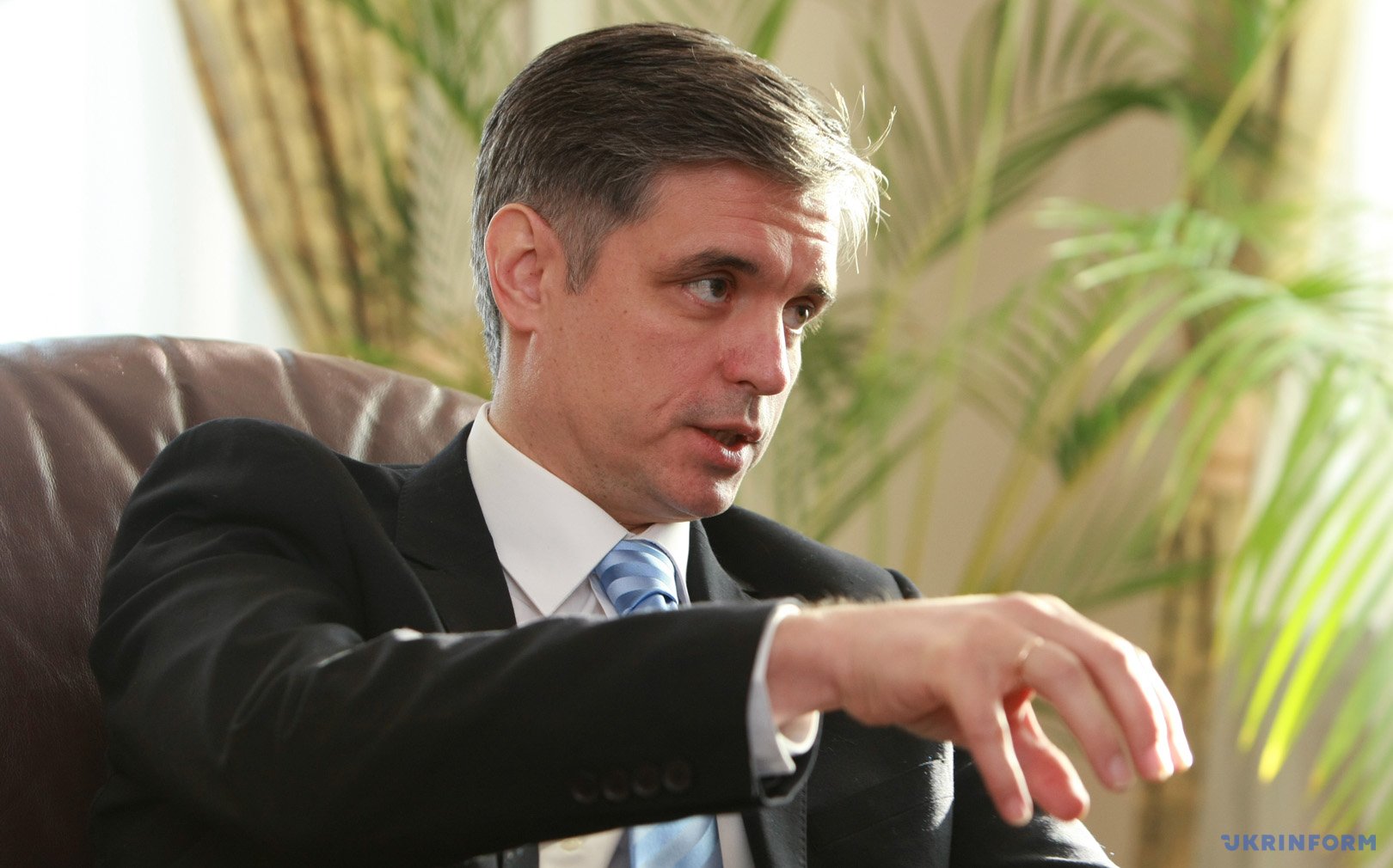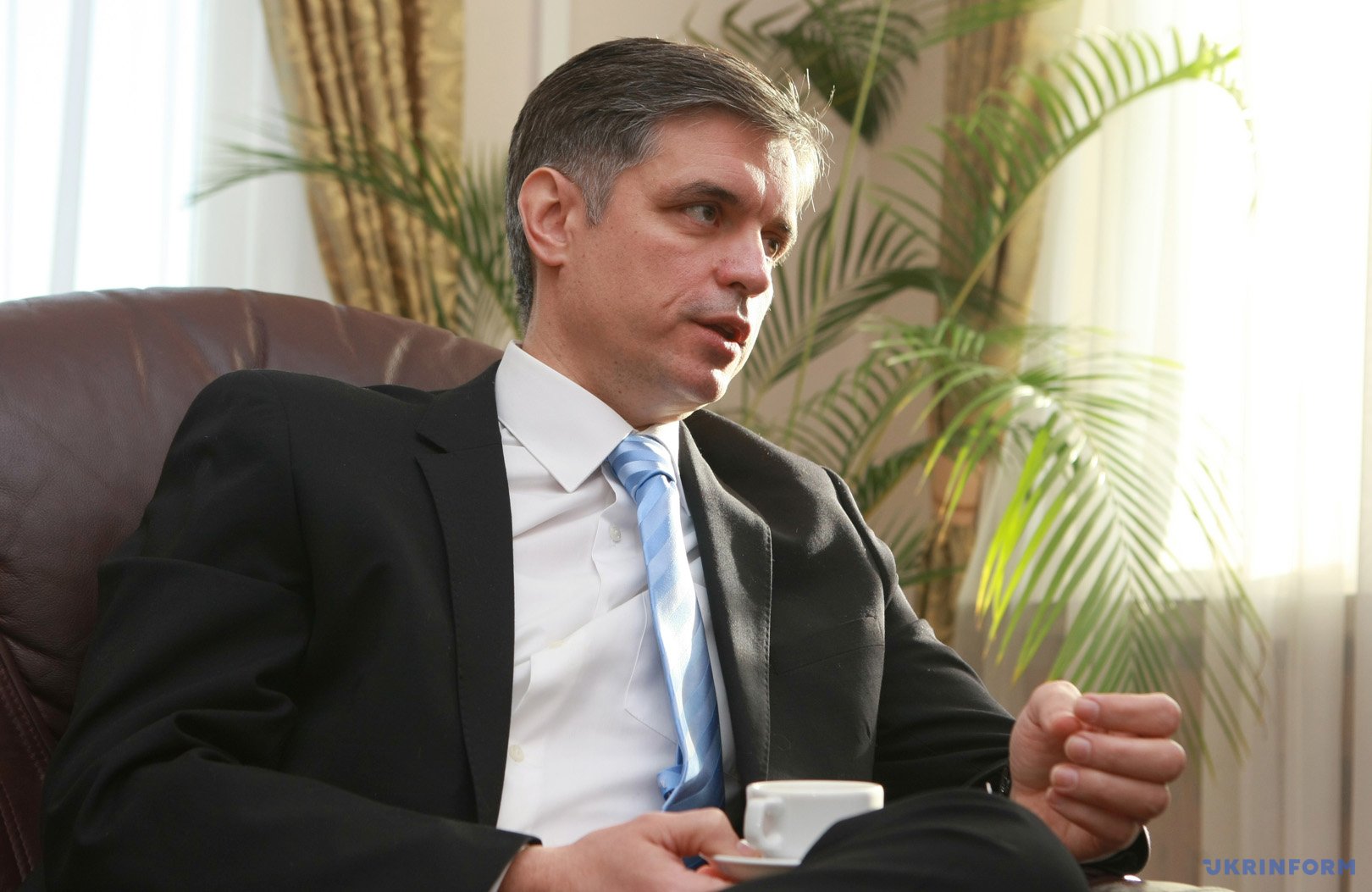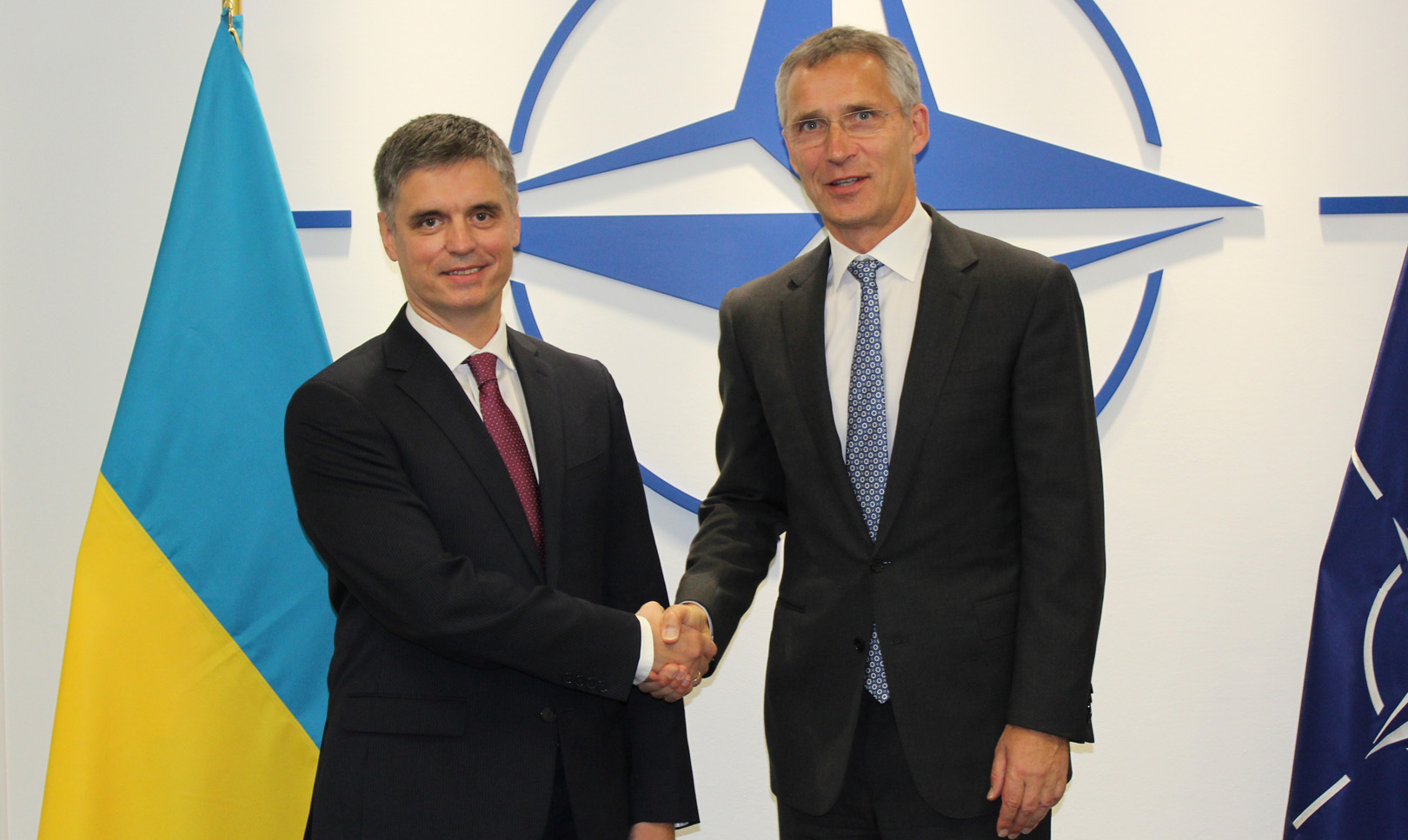Ukraine's new ambassador to the alliance has started an important stage in his diplomatic career in the period of bringing the state's policy to the Euro-Atlantic course, the ultimate goal of which is gaining membership of NATO.
In an interview with an Ukrinform correspondent in Brussels, Ambassador Vadym Prystaiko spoke about ambitious plans for political and diplomatic partnership between Ukraine and the North Atlantic Alliance in the face of Russian aggression.
Q: Mr. Ambassador, at the beginning, I have a traditional, but important question. What tasks did the Ukrainian president assign to you after your appointment as head of Ukraine's Mission to NATO?
A: The task is one and very concrete – to do everything to ensure Ukraine's security. How? We have to gain all our capabilities in this organization. And the main political goal is to become a NATO member. But at this stage, we must receive assurances, assistance from the alliance, recommendations so that our country could become more powerful and able to withstand the confrontation that is currently taking place.
Q: What about the issue of Ukraine's proposal to NATO to begin consultations on submitting a bid to obtain a Membership Action Plan (MAP)? Perhaps it is expedient to wait in the context of the so-called strategic patience so as to find a more favorable geopolitical moment for this?
A: Yes, there are different approaches in this process, in particular, on when to do it better. Whether to apply when there is already a result, for example, in 2020, the year which we defined as a stage when Ukraine will meet NATO standards and will be able to demonstrate how far the state has progressed in many areas, first of all, in the defense sector. There is such an idea to use that very moment. This would be a good opportunity to say: you see, we have fulfilled what we promised.

At the same time, this dialogue has already started immediately. Since my first talk with the secretary general of the alliance, when I handed him a letter from the president of Ukraine, it said that our main political task is to get NATO membership. But in order to achieve this, it is necessary to start a dialogue and get a Membership Action Plan and implement it.
We should not forget that for the past ten years we have been implementing our national cooperation programs (ANP) with NATO, which meet the expectations of the allies as part of the MAP. We adapt the program every year, and this year there will be a new, very important stage, when we have a completely new ANP.
Q: What allies in the alliance can openly, unofficially or potentially block the provision of the MAP to Ukraine or even preliminary consultations on this?
A: This question cannot be answered diplomatically, not because we do not want it, but because it harms our work. If we disclose now the positions that we know, then there is one particular ally whose behavior disturbs me. In particular, the issue concerns a statement made by Hungarian Foreign Minister Szijjarto about the intention to block Ukraine in the European Union. I did not hear from the Hungarian minister about the position with respect to NATO. I meet with the Hungarian ambassador this week. I hope that our Hungarian colleagues understand that raising bilateral issues at the level of such an important security organization as NATO is not entirely correct. Let's hope that this will not happen.
Q: This week Brussels will host a meeting of the NATO-Russia Council at the level of permanent representatives, the fifth one since 2014. As is known, the alliance's policy towards Russia remains allegedly unchanged. NATO suspended practical cooperation with Moscow, but leaves open the channels for political and diplomatic dialogue. Regarding this meeting, in terms of Russian aggression against Ukraine, which positions were agreed and coordinated by Kyiv and the alliance so that NATO could bring them to the Russian side?
A: Ukraine's question always remains on the agenda of these meetings. Yes, it is NATO's position to continue such meetings to follow two approaches to Russia, on the one hand, to strengthen defense and deterrence, and on the other hand, there is a need to maintain contact in order to try to understand each other.

The format of the NATO-Russia Council raises a lot of criticism from those who believe that it's not necessary to maintain contact with the aggressor at all. But there are some nations that still believe that it is necessary to explain to Russia so that it understands and leaves Ukraine alone. Obviously, we, as a warring state, do not understand such tactics. But one must realize that NATO as an organization has the right to its own approach and is responsible to its peoples about how to prevent a full-scale confrontation with Russia.
However, Ukraine is always the number one issue. As far as we know, Moscow always tries to drop this issue, but NATO returns to it every time and says it is a prerequisite for holding the meeting. The Russian side agrees with this, but every time it tries to dilute it and reduce the relevance of this issue. But NATO's position remains unchanged - Russia must get out of Ukraine, the annexation of Crimea is not recognized, and Moscow must comply with the Minsk accords.
Q: Last week, Secretary of the National Security and Defense Council of Ukraine Oleksandr Turchynov postponed his first visit to NATO headquarters in Brussels. The NSDC disclosed the reasons for postponing the visit. When can this event happen?
A: There is a technical approach to this issue. High-level visits are being prepared, and there are always risks that they may not be held due to other responsible issues. Our partners take this approach with understanding. Unfortunately, such a visit did not take place for the second time. However, after my request to postpone this visit, the allies are determining other dates. We are working on other alternative options for the arrival of Oleksandr Turchynov and his meeting with the secretary general and allies.
Q: Is the Ukrainian defense minister planning to visit Brussels to participate in a NATO ministerial meeting on November 9-10? What is the agenda for a meeting of the heads of military departments and partners?
A: This visit is still in question. We are planning to organize a high-level visit by the end of the year and hold a NATO-Ukraine Commission meeting at the level of foreign ministers in early December.

Q: What about the initiative of the Ukrainian president on the launch of a new trust fund on assistance from the alliance in conducting psychological rehabilitation of Ukrainian military who repelled Russian aggression?
A: It is still being processed. The country that will do this has to be identified. In general, the issue of filling trust funds is not ideal. The funds are not 100% full. But we work to improve the filling. There are also priorities here, for example, regarding the trust fund for demining. After all, this is connected with the security of our people - both civilians and military. And here there is a real progress.
Q: The NATO secretary general announced the alliance will hold a summit in Brussels on July 11-12, 2018. What agenda for this event can be set for Ukraine?
A: For Ukraine, the priority is to hold a special meeting of the NATO-Ukraine Commission at the highest level to which the president will be invited.
The mission is currently working on this. The results of the implementation of a comprehensive program of support for Ukraine by the alliance and the work of trust funds will be summed up by that time. It will be possible to declare the fulfillment of a certain stage for us. Also, as planned, by that time we will receive support for our bid to join the Enhanced Opportunity Program. That is, Ukraine should be invited to this program. We are working on it.
Q: Can this be a certain intermediate stage before applying for NATO membership and getting a MAP?
A: I would not call it an intermediate stage. After all, different countries are involved in this program. Some remain within such an enhanced partnership and are not going to get the MAP. But there is a country like Georgia, which seeks to get the MAP, or to step through this stage and immediately become a NATO member.
Q: For several years now, the question of the so-called "military Schengen zone" has been raised and discussed in NATO and in the European Union. In particular, the Dutch defense minister and the former U.S. Army Commander in Europe are actively promoting such a regime for the maximum simplified movement of military contingents, armaments, equipment, materials across the borders of member states, in particular NATO. What is your opinion about this, can Ukraine, as a partner, contribute to this possible international legal order in Europe?
A: The word "Schengen" is used here simply by analogy. And these agreements have nothing in common. The access of armed forces of other states to Ukrainian territory is regulated by the parliament. It is a positive idea for Ukraine to decide how we can join this. But this does not apply to Russian tanks.
Q: Given the military experience gained and the accumulated military potential of Ukraine in confronting armed aggression and the hybrid war unleashed by Russia, how can Kyiv be useful for the alliance and its individual allies and partners?
A: We still cannot become a donor of security, as we need to resolve the issue of security in our own territory. Regarding the real experience gained, it is undoubtedly interesting to NATO. This is also about hybrid challenges and cybercrime, which is supported by the Russian government, Russian special services.
Even the experience of fighting. Europe has not remembered for a long time when troops are fighting or how they dig the trenches...
Unfortunately, Ukraine is passing through this again. This is also about the experience of counteracting the use by the Russians of the latest technology, means of electronic warfare, drones, and everything else that they are testing on us. We are ready to share all these data, no matter how hard they are received, with the alliance, and NATO values it.
Andrii Lavreniuk, Brussels.

